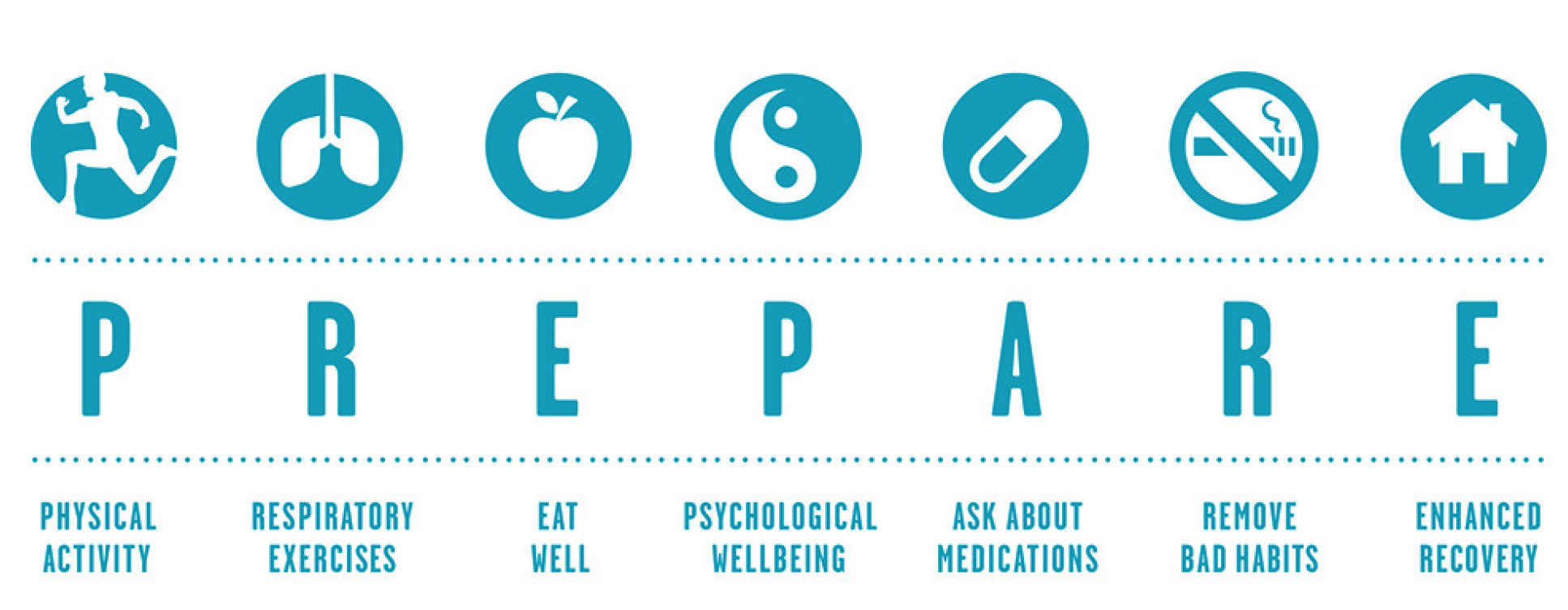
Contact
Mr Krishna Moorthy
k.moorthy@imperial.ac.uk
What we do
A multi-disciplinary health optimisation programme (prehablitation) for patients undergoing treatment for oesophago-gastric cancer. Patients received multi-modal prehabilitation that includes personalised home based exercise, dietetic input and psychological support during neo-adjuvant treatment and prior to major cancer surgery
Why it is important
Patients undergoing treatment for oesophago-gastric cancer are typically elderly and deconditioned either due to obesity or frailty and suffer from multi-morbidity. In addition to which they receive neo-adjuvant treatment which leads to further deconditioning. There is evidence that suggests that physical fitness or cardio-respiratory fitness is a predictor of adverse outcomes after surgery. Nearly 60% of patients experience post-operative complications after an oesophagectomy and 20-50% of patients experience post-operative pulmonary complications, especially pneumonia. Rationale behind prehabilitation is that improving fitness during treatment and before surgery will lead to an improvement in post-operative outcomes.
How it can benefit patients
Prehabilitation can protect against the deleterious effects of neo-adjuvant treatment by preventing deterioration in fitness and optimising nutrition. A number of cancer patients experience psychological morbidity when diagnosed. Providing them with psychological support during treatment can help with reducing symptoms such as fatigue as well improving quality of life. Improving fitness prior to surgery can lead to improved post-operative outcomes
Summary of current research
Clinical
- Patients did not experience any significant deterioration in fitness during neo-adjuvant chemotherapy and an improvement in self efficacy.
- In the immediate pre-operative period, people had a significant improvement in their fitness.
- This led to a significant reduction in post-operative pneumonia and a reduced hospital stay.
- Our research also showed that there was a dose response relationship between the dose of exercise (adherence) and the response (fitness, pVO2max). There was also a correlation between the improvement in fitness and the risk of pneumonia. Our research indicates that people need support during pre-habilitation to ensure higher levels of adherence to their exercise programme, which will lead to higher levels of fitness and result in better post-operative outcomes.
- Our research also demonstrates an improvement in self efficacy and anxiety in patients undergoing prehabilitation.
Sarcopenia
- Patients undergoing prehabilitation experience lower risk of sarcopenia as compared to controls
Inflammation
- Preliminary research is exploring the mechanisms behind the lowering of post-operative pneumonia by measuring mRNA for pro-inflammatory and anti-inflammatory markers in adipose tissues in patients undergoing surgery for oesophago-gastric cancer.
Additional information
Internal
- Prof George Hanna, Professor of Surgery and Head of Department
- Dr Alex King, Consultant Clinical Psychologist
- Dr Jacques Behmoaras, Reader in Immunogenetics
- Mr Piers Boshier, Clinical Lecturer, Department of Surgery and Cancer
External
- Ms Laura Halliday
Our researchers
Krishna Moorthy
/prod01/channel_3/media/migration/faculty-of-medicine/portrait-14_1612969501582_x4.jpg)
Krishna Moorthy
Principal investigator
Laura Halliday
/prod01/channel_3/media/migration/faculty-of-medicine/holding-png-tojpeg-1564655919889-x2_1612970056636_x4.jpg)
Laura Halliday
Clinical Research Fellow